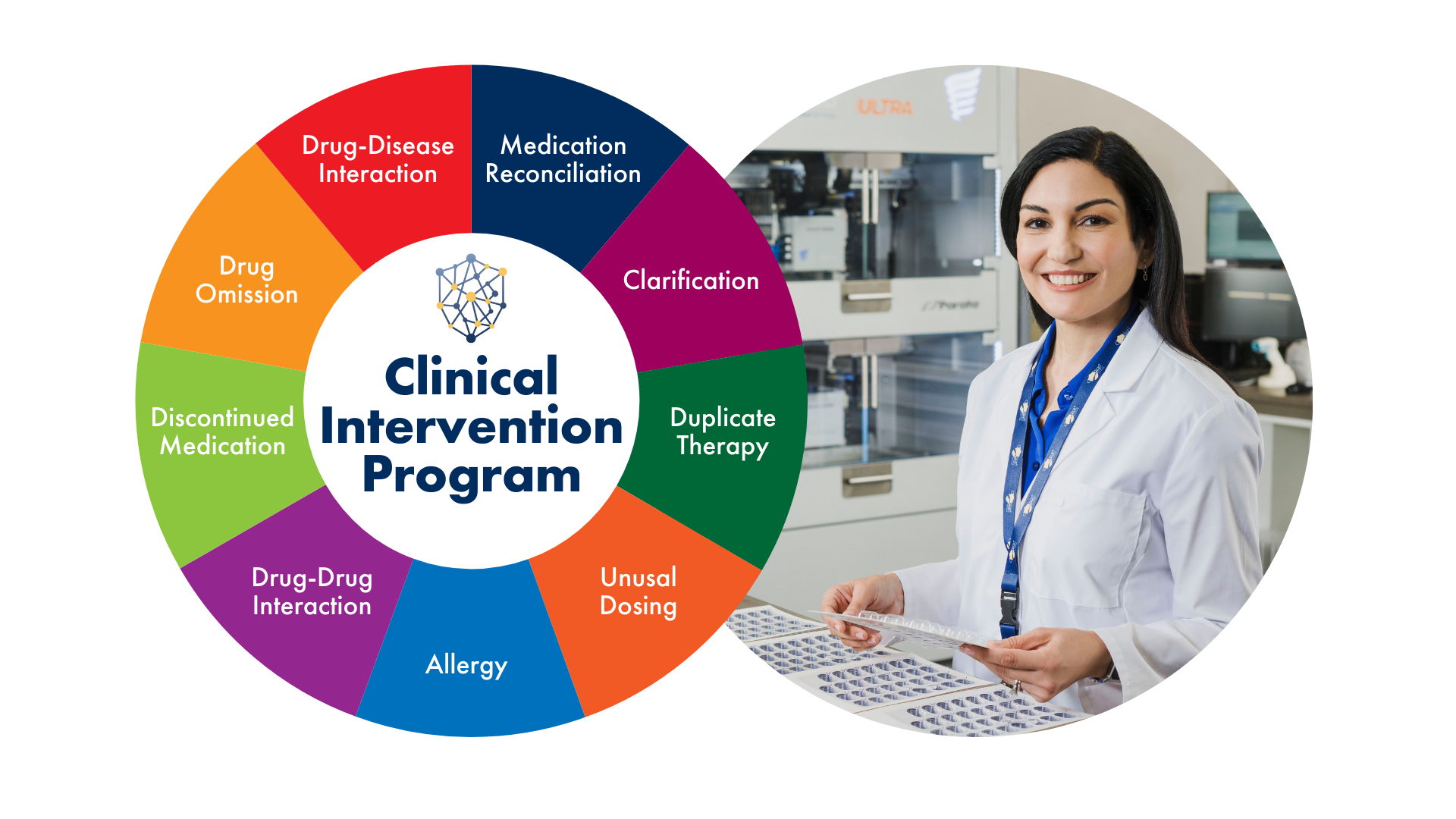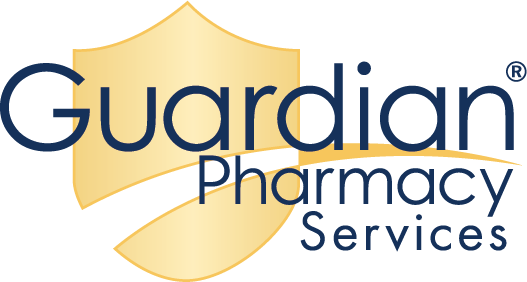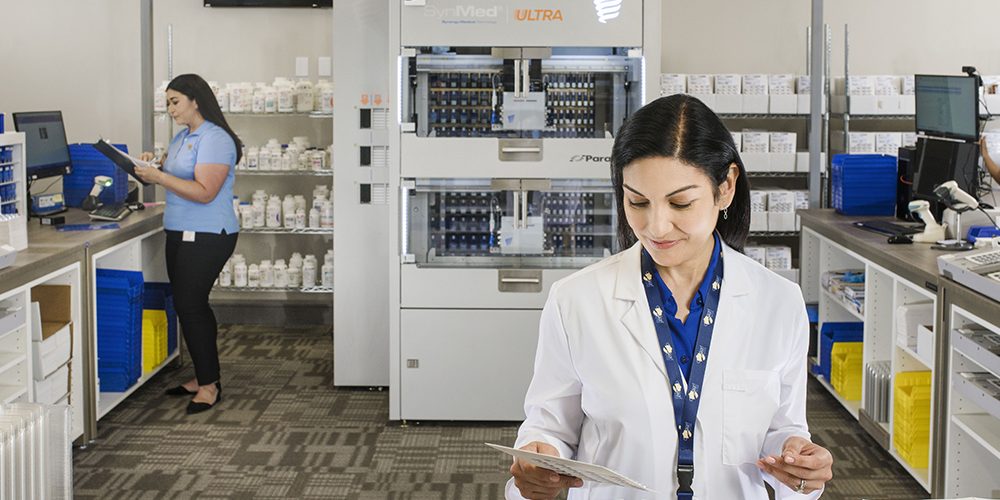GuardianShield’s Clinical Intervention Program: Ensuring Medication Safety and Resident Well-being
Adverse drug events (ADEs) are a common cause of unplanned hospitalizations, increasing morbidity, mortality, and healthcare costs. Each year, they account for over 3.5 million doctor’s office visits, 1 million emergency room visits, and 125,000 hospital admissions.
However, nearly half of these events are preventable.
ADEs include allergic reactions; doses that are too high or too low for an individual; drug-drug interactions; drug-disease interactions; and adverse reactions such as falls. The risk increases with age-related physiological changes, comorbidities, polypharmacy, and suboptimal drug monitoring. In older adults, ADEs can frequently lead to serious complications such as orthostatic hypotension, heart failure, delirium, kidney failure, falls, and gastrointestinal and intracranial bleeding.
Given the prevalence and preventability of ADEs, developing and implementing prevention strategies is a priority for healthcare providers. That’s why Guardian’s business intelligence unit and clinical teams developed our proprietary Clinical Intervention Program.
Understanding Clinical Intervention
A clinical intervention refers to any instance where a Guardian pharmacist or pharmacy staff member takes an extra step to process or dispense a prescription. This goes beyond the standard procedures of a retail or mail order pharmacy and highlights the specialized care provided by long-term care (LTC) pharmacists.
The Clinical Intervention Program, part of the GuardianShield suite of services, provides visibility into the clinical decisions and interventions Guardian pharmacists make every day to safeguard residents from medication harm. Medication safety and health outcomes are demonstrated through comprehensive tracking of clinical interventions, which aim to protect residents from potentially negative medication effects. In addition to monitoring for various types of interventions, the program tracks the number of residents who required an intervention, the number of interventions performed by Guardian pharmacists, and the pharmacists’ time committed to the clinical activities.
Types of Clinical Intervention
Guardian’s Clinical Intervention Program tracks nine types of interventions:

Medication Reconciliation: Comparing multiple medication lists from different sources and times to ensure the correct regimen, especially during care transitions.
Clarification: Communicating with the prescribing physician or community staff regarding clinical issues, such as missing or incomplete dosage information.
Duplicate Therapy: Detecting two medications from the same class or with similar actions prescribed simultaneously. Often necessitates discontinuing one or more medications.
Unusual Dosing: Identifying dosages significantly higher or lower than recommended for the condition or individual being treated.
Allergy: Identifying and preventing potential allergic reactions to prescribed medications. This process often involves multiple communications with the community and prescriber and selection of alternative medications to ensure resident safety.
Drug-Drug Interaction: Identifying interactions between two or more medications that may cause side effects or adverse events, necessitating further monitoring or alternative therapy.
Allergy: Identifying and preventing potential allergic reactions to prescribed medications. This process often involves multiple communications with the community and prescriber and selection of alternative medications to ensure resident safety.
Drug-Drug Interaction: Identifying interactions between two or more medications that may cause side effects or adverse events, necessitating further monitoring or alternative therapy.
Discontinued Medication: Determining the necessity to discontinue a medication due to conflicting orders, possible side effects, or adverse drug events.
Drug Omission: Uncovering missing chronic medications in a resident’s regimen, commonly found during medication reconciliation reviews and care transitions.
Drug-Disease Interaction: Assessing potential interactions between medications and a resident’s medical condition, which may require dose adjustments, alternative therapy, or additional monitoring.
Clinical Intervention in Action
 Meet Alice, a resident of an LTC community with multiple prescriptions. Previously, Alice’s pharmacists lacked a comprehensive view of her medical profile. Now, under Guardian’s care, Alice’s medication profile is thoroughly reviewed by Guardian pharmacists, who identify any prescription conflicts and ensure she is on the best medication regimen to improve her health outcomes.
Meet Alice, a resident of an LTC community with multiple prescriptions. Previously, Alice’s pharmacists lacked a comprehensive view of her medical profile. Now, under Guardian’s care, Alice’s medication profile is thoroughly reviewed by Guardian pharmacists, who identify any prescription conflicts and ensure she is on the best medication regimen to improve her health outcomes.
This personalized approach to resident well-being enhances medication safety, reduces health care costs, and optimizes therapeutic outcomes, ultimately improving the quality of life for residents like Alice.
The Impact of Our Clinical Intervention Program
 In 2023, Guardian’s Clinical Intervention Program facilitated over 98,000 pharmacist-led interventions, totaling more than 33,000 pharmacist hours, and impacting nearly 72,000 residents.
In 2023, Guardian’s Clinical Intervention Program facilitated over 98,000 pharmacist-led interventions, totaling more than 33,000 pharmacist hours, and impacting nearly 72,000 residents.
These interventions were pivotal in preventing harmful drug interactions, inappropriate dosing, and risks associated with polypharmacy. One in 10 interventions addressed duplicate therapies, and more than nine percent involved unusual dosing, reflecting potentially inappropriate drug doses, durations, or frequencies for individual residents.
Gain Peace of Mind With GuardianShield’s Clinical Intervention Program
Our Clinical Intervention Program is a core component of our approach to promoting the safe and effective use of medications. This proactive management of medication-related risks, combined with the insights that community leadership gains from comprehensive tracking and reporting, provides peace of mind to residents, families, and healthcare providers. By identifying and addressing critical issues related to medication use, Guardian pharmacists not only reduce the risk of adverse medication events and hospitalizations but also ensure that each resident’s medication regimen is optimized for their specific healthcare needs.








